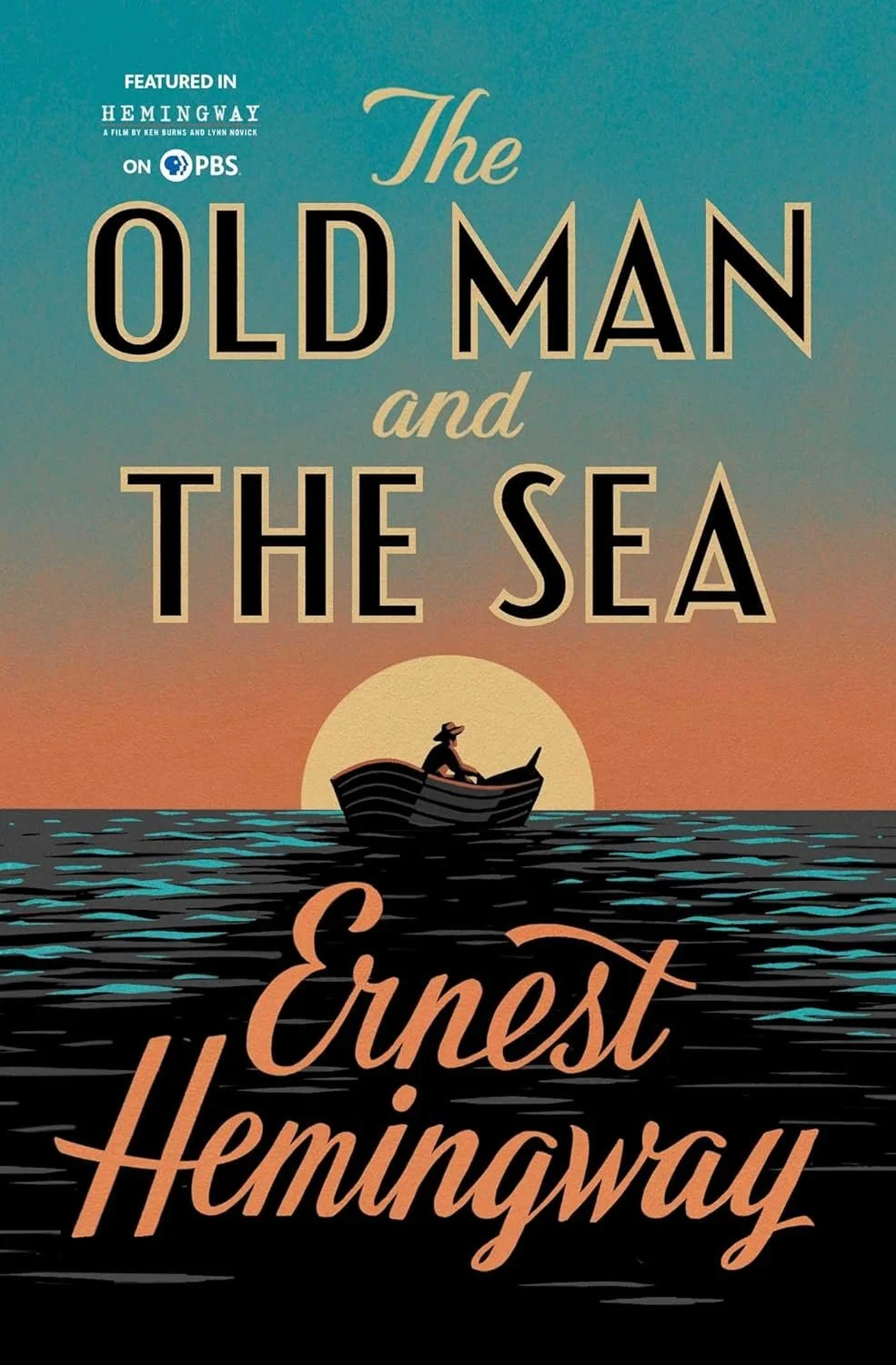The Old Man and the Sea

The Old Man and the Sea
By Ernest Hemingway
After two nights of reading, I've finished Ernest Hemingway's The Old Man and the Sea. Now, again, I realize I'm a bit late to the literary conversation here, but I think the novella holds true today because of what it's saying.
Like most of Hemingway's writings in his short story, the novella focuses more on age as markers for the characters rather than names. There's Santiago, but in true Hemingway style, he's mostly referred to as "the old man" (hence, the title). At first glance (by today's standards), this practice might be considered bad writing. We live in a world now where readers want to be both reminded of the character’s name and convinced by the writer that the character’s identity is what the writer reports it as being. But Hemingway rejects this notion and goes completely against it. Why?
When examined with the plot, it's really a genius move. His constant reference to age only reinforces his thematic patterning to explore the idea of mortality and defeat. Hemingway's writing seems to say that when we're young, we seem to be able to do everything. We can sail the oceans and catch the biggest fish, we can fight off wild beasts. But then it asks the question when we age, what is left? What becomes of us? And what can we do about it? Hemingway takes his readers into the piece to find the answers, leading them to a splendid ending.
One of the beautiful things about reading Hemingway is probably his brevity. As a writer who struggles with brevity at times, his ability to cut through everything and head straight for the point is admirable. This is the first longer work of his that I’ve read; until now, all I’ve read are his short stories. But his literary darkness only makes me want to read the novels by him.
A must read, folks. A must read.
